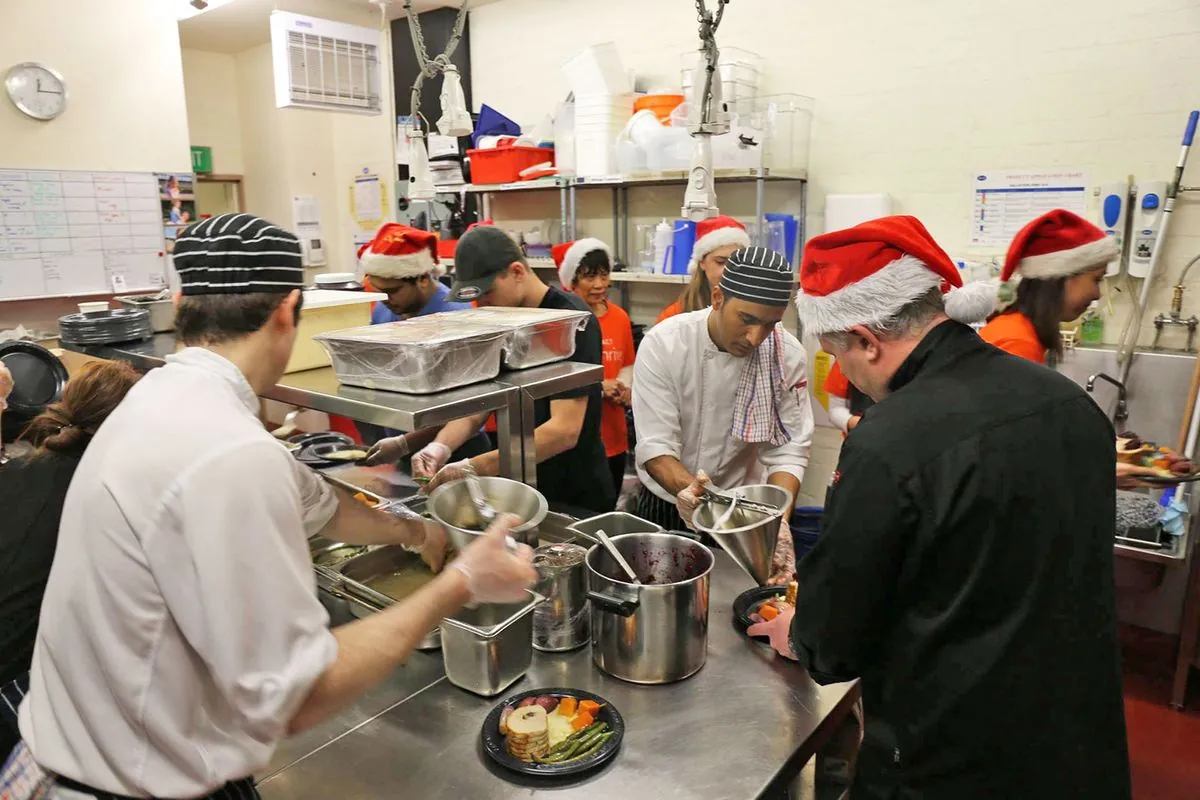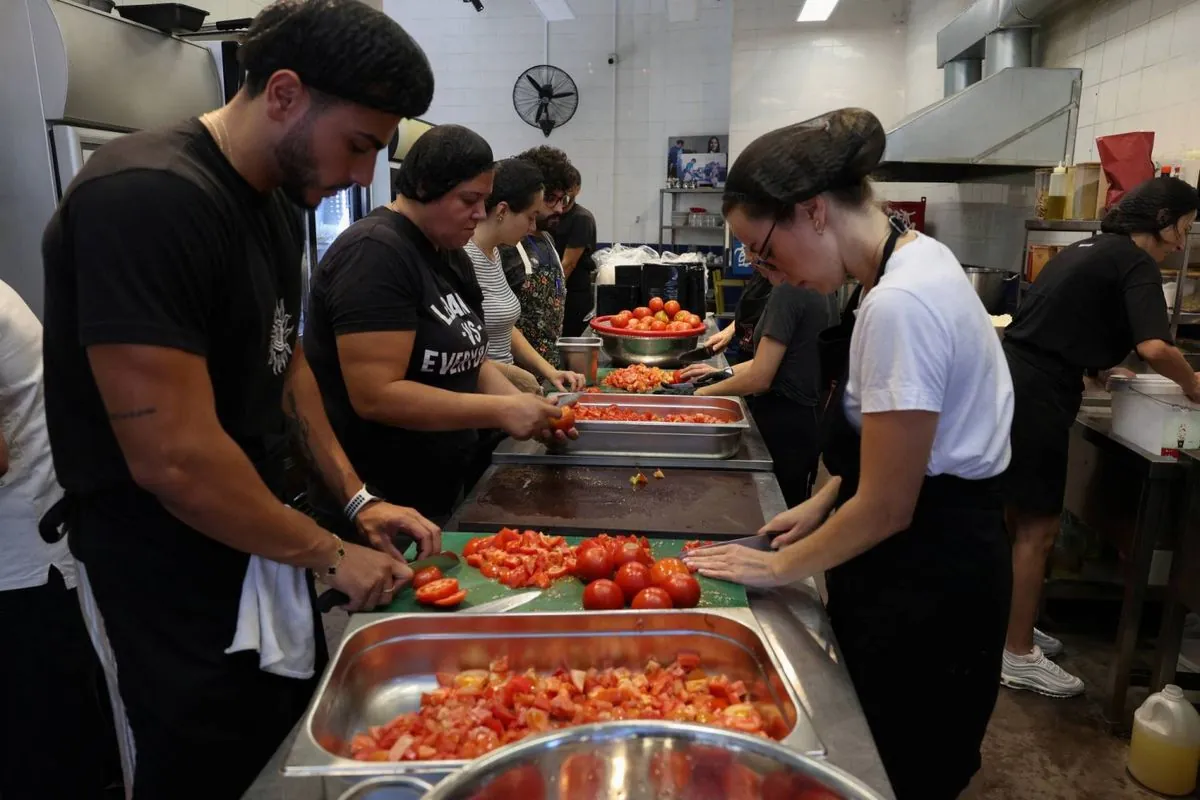Beirut Soup Kitchen Struggles to Feed Displaced as Conflict Escalates
A Beirut soup kitchen, Nation Station, is straining to meet rising demand from those displaced by recent Israeli strikes. Founded after the 2020 port explosion, it now serves 700 meals daily, relying on donations and volunteers.

In the heart of Beirut, a city steeped in history and conflict, a soup kitchen named Nation Station is grappling with an overwhelming demand for meals. This surge comes as thousands flee their homes due to intensified Israeli strikes across Lebanon.
Nation Station, originally established to aid victims of the catastrophic 2020 Beirut port explosion, now finds itself at the forefront of a new crisis. The kitchen, operating at maximum capacity, serves 700 meals daily but faces requests for up to 1,000. Josephine Abu Abdo, a chef and co-founder, expresses the challenge: "We feel like we are just a drop in the ocean."
The recent escalation of conflict has forced approximately 40,000 people into shelters within days. This displacement crisis is unfolding against the backdrop of Lebanon's ongoing struggles, including a severe economic downturn that has seen its currency lose over 90% of its value since 2019.
Nation Station's menu reflects the rich culinary heritage of Lebanon, offering traditional dishes such as zucchini stuffed with rice and meat, bulgur with tomato, and cabbage salad. These meals provide not just sustenance but a taste of home for those displaced.

The kitchen's efforts are a testament to the resilience of the Lebanese people, who have faced numerous challenges throughout their history. Lebanon, a country with a diverse religious makeup including Sunni and Shia Muslims, Christians, and Druze, has experienced multiple conflicts since gaining independence in 1943.
Nation Station's work is entirely funded by donations, operating on a day-to-day basis. Abu Abdo notes, "The donation that we receive will cover us for two or three days. We will see, one day at a time and we will make a decision."
The current conflict between Israel and Hezbollah, an Iran-backed organization founded in 1985, has reached its most intense level in over 18 years. Israeli attacks have resulted in significant casualties in Lebanon, while Hezbollah has been firing rockets into Israel for nearly a year in support of Hamas.
This escalation has led to widespread displacement on both sides of the 120-kilometer Israel-Lebanon border. Israel has declared the safe return of its residents as one of its war aims, highlighting the complex geopolitical situation in the region.
Despite the challenges, volunteers at Nation Station remain committed to their cause. May Ayash, a professional chef volunteering at the kitchen, reflects the sentiment of many: "We are all trying our hardest to make a little bit of a difference and to help out. It's like the least we can do and unfortunately we are used to this."
The situation in Lebanon is further complicated by its status as the country with the highest number of refugees per capita globally, including many from Syria. This, combined with ongoing electricity shortages and infrastructure problems, puts additional strain on humanitarian efforts like Nation Station.
As Lebanon faces this latest crisis, the work of Nation Station and its volunteers stands as a beacon of hope and solidarity in a country that has long been at the crossroads of regional conflicts. Their efforts, while seemingly small in the face of overwhelming need, represent the enduring spirit of a nation that continues to persevere through adversity.


































